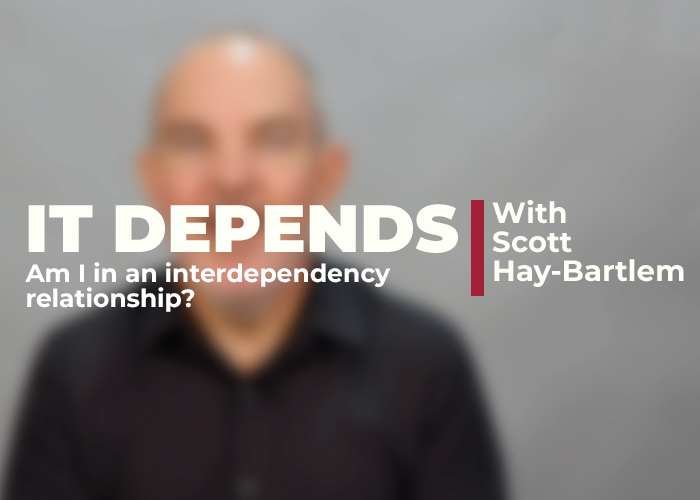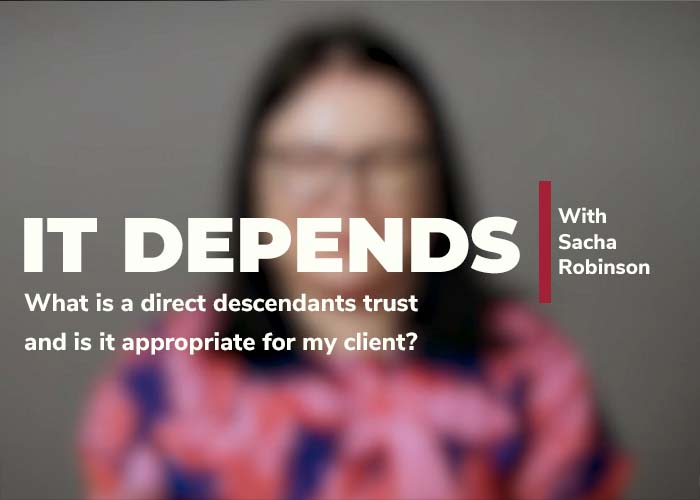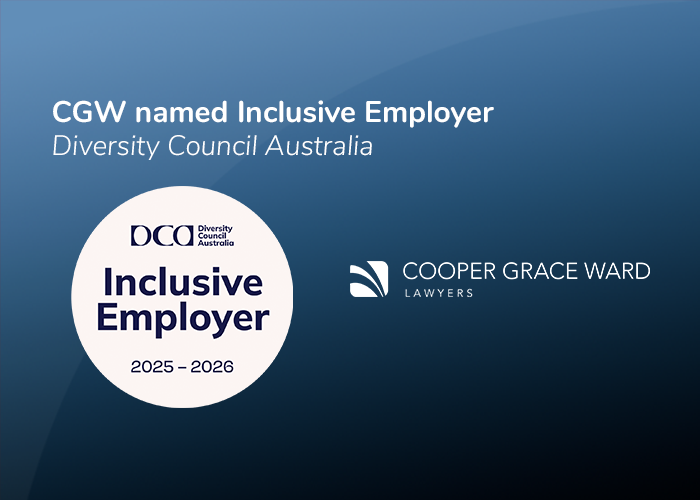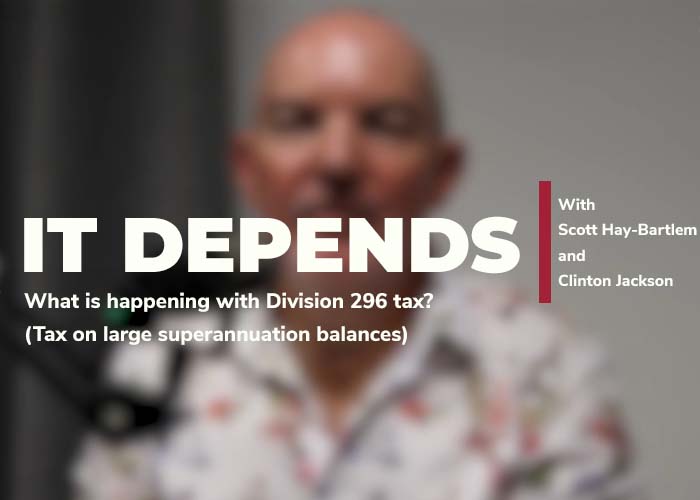In this edition of ‘It depends’, partner Scott Hay-Bartlem talks about whether you are in an interdependency relationship when it comes to superannuation benefits.
VIDEO TRANSCRIPT
Welcome to this edition of It Depends. I’m going to talk about ‘Am I in an interdependency relationship?’
Why might it be important?
So, interdependency relationship is a category of people to whom we can pay your superannuation benefit. Both the possible recipient and it goes to them as a tax dependent tax free.
When does it matter?
So, when we’re talking about being in an interdependency relationship, we’re talking about to whom we can pay your death benefit from your superannuation fund when you have died. You needed to be in an interdependency relationship with the person just before you died.
What are the conditions?
There are four conditions for being in an interdependency relationship. Number one, you’ve got to have a close personal relationship. Number two, you have to live together. Number three is there has to be some degree of personal care between the two people. And number four is there has to be some kind of financial cost sharing, not actual dependency, it’s a lesser threshold than that.
Will I have people who qualify?
So, this is your big “It Depends” and it’s going to come back to your particular circumstances. It was introduced as a Democrat compromise for GST in 2000 to allow same sex couples to get each other’s superannuation before they were ‘spouses’. So, some situations where we’ve used it, adult children dependent upon parents and parents dependent upon adult children. Grandchildren will not normally be a dependent, but they could be as an interdependency relationship. Brothers and sisters who live together, we might be able to pay the super to them. So, it can be a very useful way of getting more people able to get your super, and more importantly, get it tax free.
What evidence do I need?
The law says a statutory declaration that sets out the circumstances and that you’re in an interdependency relationship. It’s also better though, to have the evidence as well, of things like shared expenses and shared addresses and the care you provide to each other, because we may have to use that to support the argument that you’re in an interdependency relationship. When we’re doing this, one of you has already died, so we can’t get evidence from them. I’ve had a few situations lately where the survivor has lost capacity and we weren’t able to get the evidence from them either. So, getting it in place earlier and organised can be really important.
In an SMSF will my trust deed allow it?
So, this is another “It Depends.” As I mentioned earlier, it came in in 2000, so a pre-2000 trust deed won’t allow it. You need to read the deed, read the deed, read the deed and have a good look to make sure you can pay to someone in an interdependency relationship if that’s your plan. Any questions about death benefits or interdependency relationships, have a chat with someone from our super and estates team. Thanks for watching It Depends.





